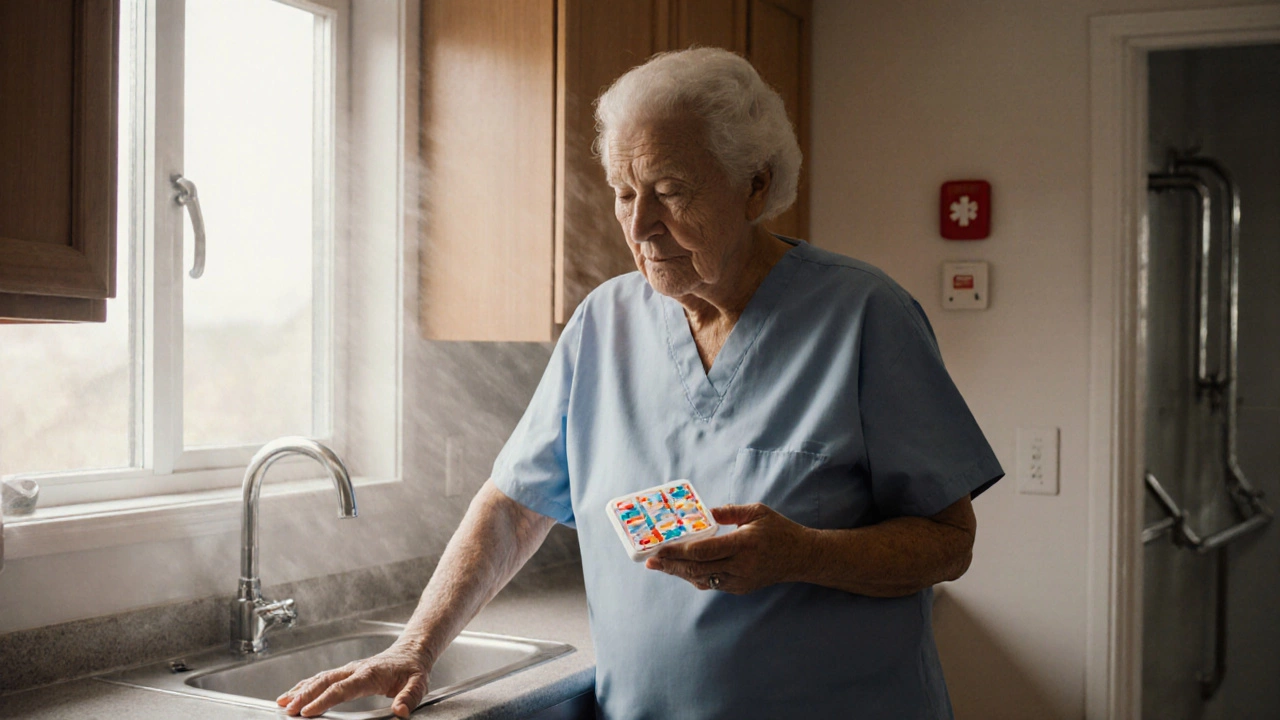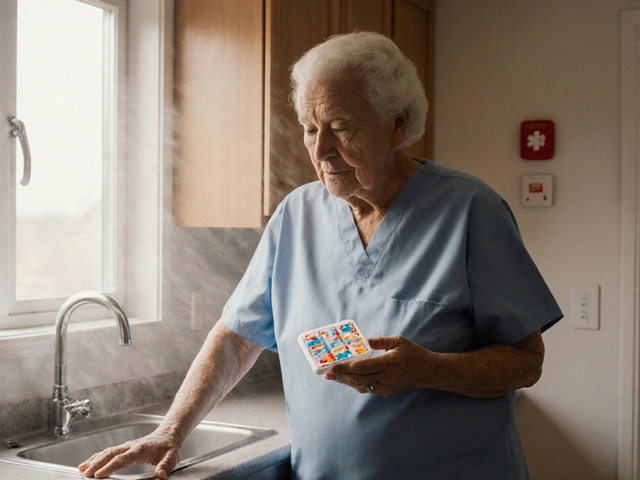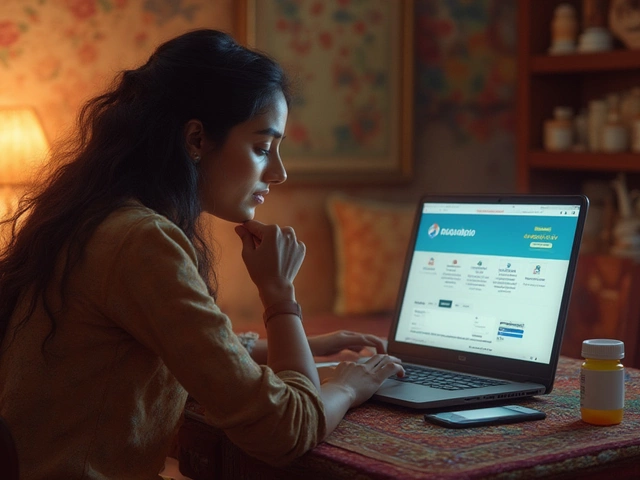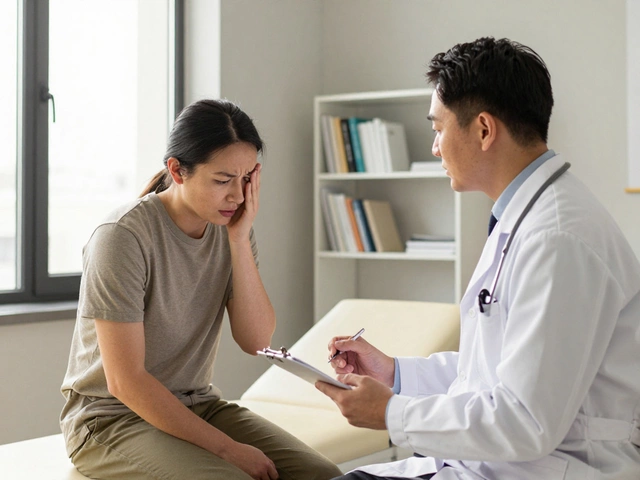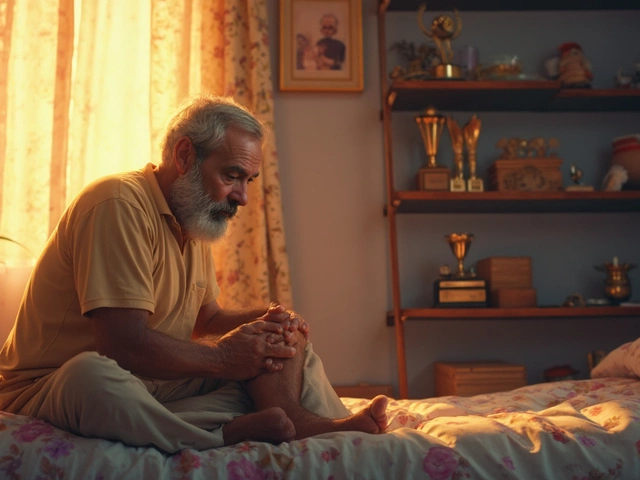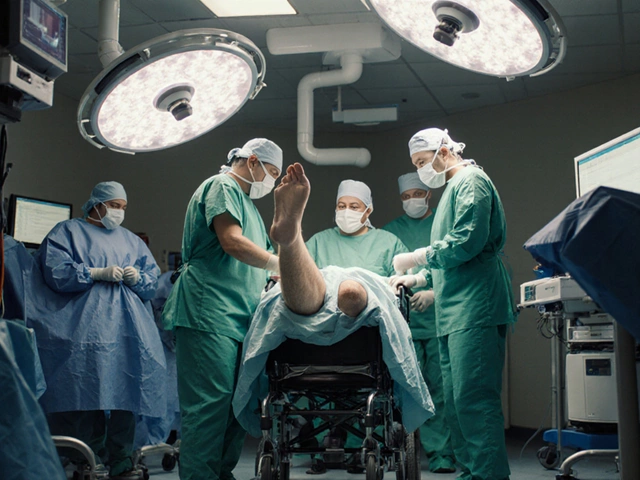Recovery Readiness Calculator
Recovery Readiness Assessment
After open-heart surgery, the question isn’t just when you can live alone-it’s whether you’re truly ready. Many patients leave the hospital feeling stronger than expected, but recovery isn’t about strength alone. It’s about safety, stamina, and support. The average timeline to live alone after open-heart surgery is between 4 to 8 weeks, but that’s just a starting point. Some people need longer. Others might manage sooner. What matters is not the calendar, but your body’s signals.
What Happens in the First 2 Weeks?
You’ll likely be discharged from the hospital around day 5 to 7 after surgery. At this point, you can walk short distances, use the bathroom on your own, and eat regular meals. But you’re still fragile. Your sternum is healing-bone takes 6 to 8 weeks to fuse back together. Even a hard cough or a sudden reach for something off a high shelf can cause serious pain or damage. That’s why you need someone at home during these early days.
Simple tasks become risky. Getting dressed? You might need help lifting your arms. Cooking? Standing for more than 10 minutes can leave you breathless. Driving? Not allowed until at least 4 to 6 weeks, and only after your doctor clears you. Even picking up a grocery bag can strain your chest. If you live alone, these moments can turn into emergencies fast.
Weeks 3 to 6: The Transition Phase
By week 3, most people start feeling more like themselves. Fatigue eases a little. The tightness in your chest loosens. You might begin light walking outside or doing short stretches. But you’re still recovering. Your heart is healing, but your muscles aren’t back to normal yet. The body uses more energy just to keep your heart beating efficiently after surgery.
This is when many people start thinking about living alone. But here’s the catch: just because you can do something doesn’t mean you should do it alone. Can you answer the door without getting winded? Can you reach your medicine without bending awkwardly? Can you call for help if you feel dizzy or your chest tightens? These aren’t hypotheticals-they’re daily realities.
Studies from the American Heart Association show that patients who had help during weeks 3 to 6 had 40% fewer readmissions in the first 30 days after discharge. That help doesn’t need to be full-time. A neighbor checking in twice a week, a family member dropping by for meals, or a home health aide visiting three times a week can make all the difference.
Weeks 7 to 8: Are You Ready?
By week 7, most patients can manage basic self-care. You can shower alone, dress yourself, and prepare simple meals. But readiness isn’t just about physical ability. It’s about confidence. Do you know the warning signs of trouble? Chest pain that doesn’t go away with rest? Sudden swelling in your legs? Fever over 101°F? Rapid heartbeat? These aren’t normal. If you’re alone and you feel any of these, you need to act fast.
Many patients set up emergency systems before going home alone. That means a medical alert button, a phone within reach of your bed, and a list of emergency contacts taped to the fridge. Some use smart speakers to call for help with their voice. Others arrange for weekly check-ins from a friend or community volunteer.
Cardiac rehab programs often include a home safety assessment. A therapist comes to your place and checks for fall risks-loose rugs, poor lighting, stairs without handrails. If you live alone, this step is non-negotiable. A single fall could mean a fracture, a hospital return, or worse.

What If You Have No One to Help?
If you live alone and have no family or friends nearby, you’re not alone in this. Many older adults face the same challenge. Hospitals and community health services offer solutions. Home health nursing can be arranged through Medicare or Medicaid for up to 6 weeks post-surgery. These nurses help with wound checks, medication management, and monitoring your vitals.
Some areas have volunteer programs like “Meals on Wheels” that also do wellness checks. Others offer telehealth check-ins via video call every other day. Your discharge planner can connect you to these services. Don’t assume you have to manage on your own. There are systems built for this exact situation.
Signs You’re Not Ready to Live Alone
Even if your doctor says you’re cleared, listen to your body. Here are red flags that mean you need more support:
- You get out of breath walking from the bedroom to the bathroom
- You forget to take your meds more than once a week
- You avoid showering because it’s too tiring
- You haven’t left your house in over 5 days
- You feel anxious or overwhelmed thinking about being alone
These aren’t signs of weakness. They’re signs your body is still healing. Pushing too soon increases the risk of complications, depression, and hospital readmission.
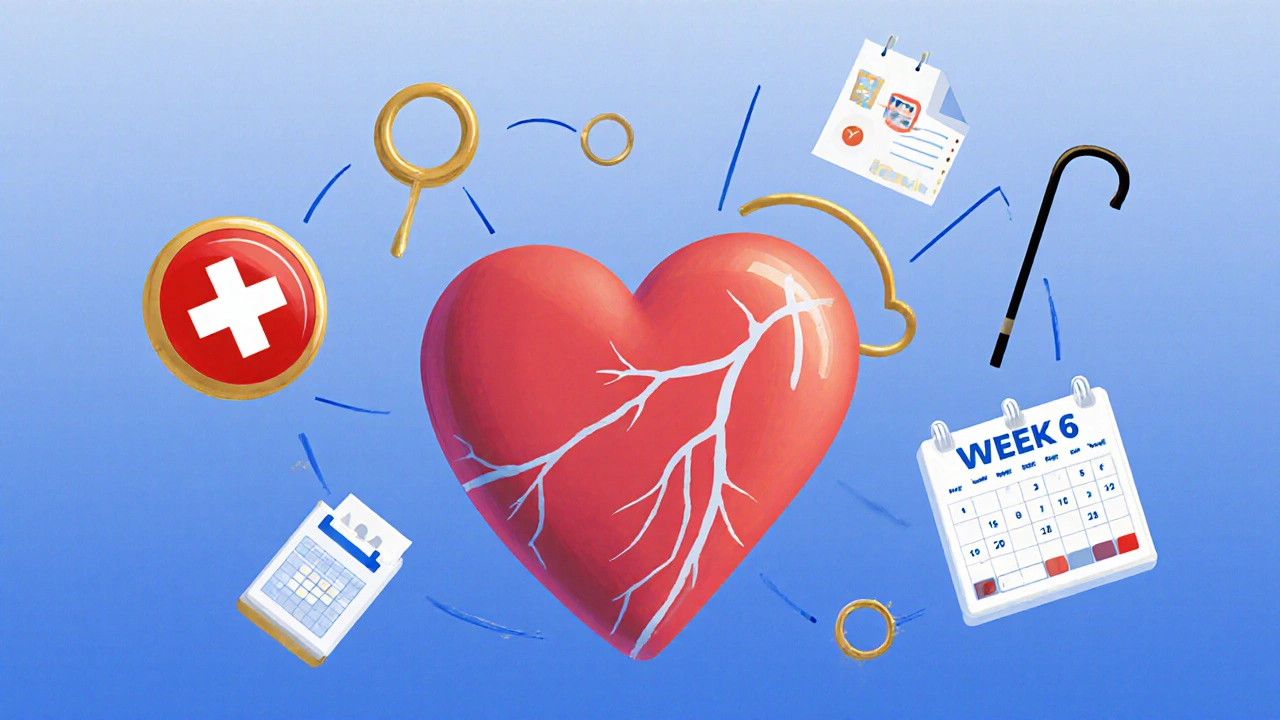
What to Do Before Moving Back In Alone
Before you make the switch, set up your home for safety and success:
- Keep all medications in a pill organizer with alarms
- Place a phone or medical alert device next to your bed
- Remove throw rugs and install grab bars in the bathroom
- Keep frequently used items at waist level-no reaching up or bending down
- Stock up on easy-to-prepare meals or sign up for meal delivery
- Set up weekly video calls with a friend or family member
Also, make sure your doctor gives you a written emergency plan. Include symptoms that require immediate care, the nearest ER’s phone number, and who to call if you can’t reach 911.
Long-Term Outlook: Living Well After Surgery
Most people who survive open-heart surgery go on to live full, active lives. Many return to work, travel, and enjoy time with family. But recovery isn’t a finish line-it’s a new starting point. Living alone after surgery means you’re in charge of your own health. That’s empowering, but it also demands discipline.
Stick to your cardiac rehab program. Attend every session. Walk daily. Eat less salt. Take your meds. Sleep well. These habits aren’t optional. They’re what keep you out of the hospital and living independently for years to come.
One patient, 72, had bypass surgery in March 2025. She lived alone from day 45. Her secret? She used a smartwatch that tracked her heart rate and sent alerts if something was off. She had a neighbor who came by every Thursday for coffee. And she never skipped her rehab exercises. Three months later, she was gardening again.
That’s the goal-not just to live alone, but to live well.
Can I live alone 2 weeks after open-heart surgery?
No, it’s not safe. At 2 weeks, your sternum is still healing and you’re at high risk for complications like infection or falls. You’ll likely still be fatigued, weak, and unable to manage daily tasks without help. Most doctors recommend at least 4 to 6 weeks of support before living alone.
What if I live alone and have no family nearby?
You’re not alone. Hospitals connect patients with home health services, telehealth check-ins, and community programs like Meals on Wheels that include wellness visits. Medicare and Medicaid often cover skilled nursing visits for up to 6 weeks after surgery. Talk to your discharge planner-they can set this up before you leave the hospital.
How do I know if I’m ready to live alone?
You’re ready when you can: walk without stopping, shower and dress without help, take your medications on time, prepare simple meals, and respond quickly to symptoms like chest pain or dizziness. You should also feel confident calling for help if needed. If you’re unsure, ask your cardiac rehab team for a home safety evaluation.
Is it safe to drive after open-heart surgery?
Most doctors say no for at least 4 to 6 weeks. Driving requires quick reactions, upper body strength, and the ability to brake suddenly-all things your body is still recovering from. Even if you feel fine, your sternum is still healing. Always check with your surgeon before getting behind the wheel.
What should I do if I feel dizzy or short of breath when living alone?
Sit down immediately. Don’t try to walk or reach for help if you’re unsteady. Use your medical alert device, call a neighbor, or dial 911. Dizziness and shortness of breath can signal a serious issue like low blood pressure, fluid buildup, or an irregular heartbeat. Don’t wait to see if it passes-act fast.
How long does it take to fully recover from open-heart surgery?
Full recovery takes 3 to 6 months. While you may feel ready to live alone by 6 to 8 weeks, your body is still rebuilding strength. Your heart muscle takes time to adapt. Muscle mass returns slowly. Energy levels stabilize over months. Stick with your rehab program, eat well, and avoid rushing back to normal activities too soon.
